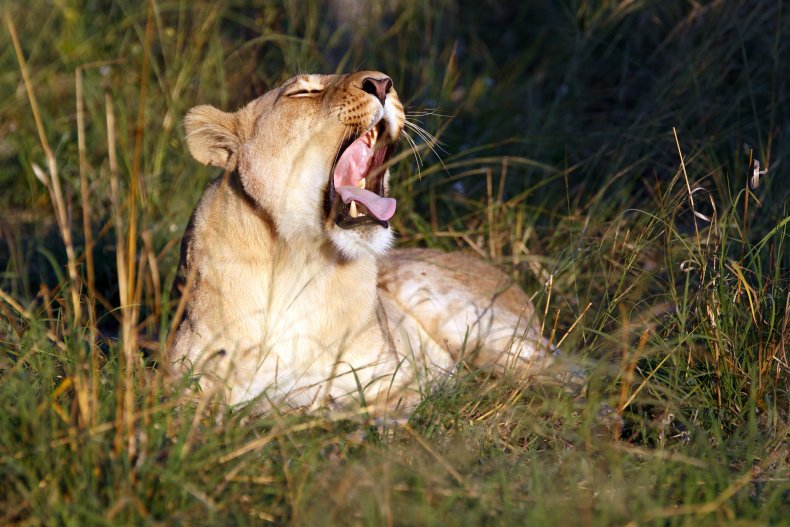Lions Find Yawning Contagious Like Humans Do, Scientists Say
Lions find yawning contagious in a similar way to humans, a team of researchers has found.
The phenomenon may be a way of helping the big cats to stay vigilant, scientists believe. The team, from the University of Pisa in Italy, have published their findings in the April edition of the journal Animal Behaviour.
Scientists have a number of explanations for why we yawn and they can be grouped into two categories: physiological and communicative. In other words, yawning may be a result of some biological factor, but it could also play a part in social behavior.
The team from Pisa said they chose to study lions because they are known to have highly co-operative social circles and to carry out group activities together. This allowed the researchers to investigate both the biological and social aspects of yawning.
They studied two prides at the Makalali game reserve in South Africa, analyzing the lions' yawning behavior over a four-month period.
They found that the big cats engaged in contagious yawning—when one yawned, others tended to do so as well.
However, this was not the only activity that the animals copied from each other. The Pisa researchers found that if one lion "caught" a yawn from another, it would also tend to copy other behavior afterwards, including standing up and walking around, according to ScienceNews.
The researchers have suggested that this behavior may help boost group awareness of their surroundings—and could have provided similar benefits to early humans.
The study reads: "Our findings suggest that the convergence of motor behavior triggered by yawn contagion (to our knowledge never explored in any other species) could represent an important tool to shed light on the adaptive and immediate benefits that underlie the evolution of the yawn contagion phenomenon in human and nonhuman animals."
Andrew Gallup, a biopsychologist at the State University of New York Polytechnic Institute, told ScienceNews that researchers might find more examples of contagious yawning in highly social species in future.
One biological effect of a yawn is that it boosts blood flow to the skull, Gallup told The New York Times in 2019. He said this could cool down the brain, which may play a part in staying alert. Although he added that, conversely, it could facilitate the change from waking to sleeping.
A reason often given to explain why people yawn is that we are not getting enough oxygen, so we yawn to get more. This theory was tested in a 1987 study that subjected human trial participants to either pure oxygen or gas mixtures with high levels of carbon dioxide. The study found that neither had a significant effect on yawning, and rejected the hypothesis.


